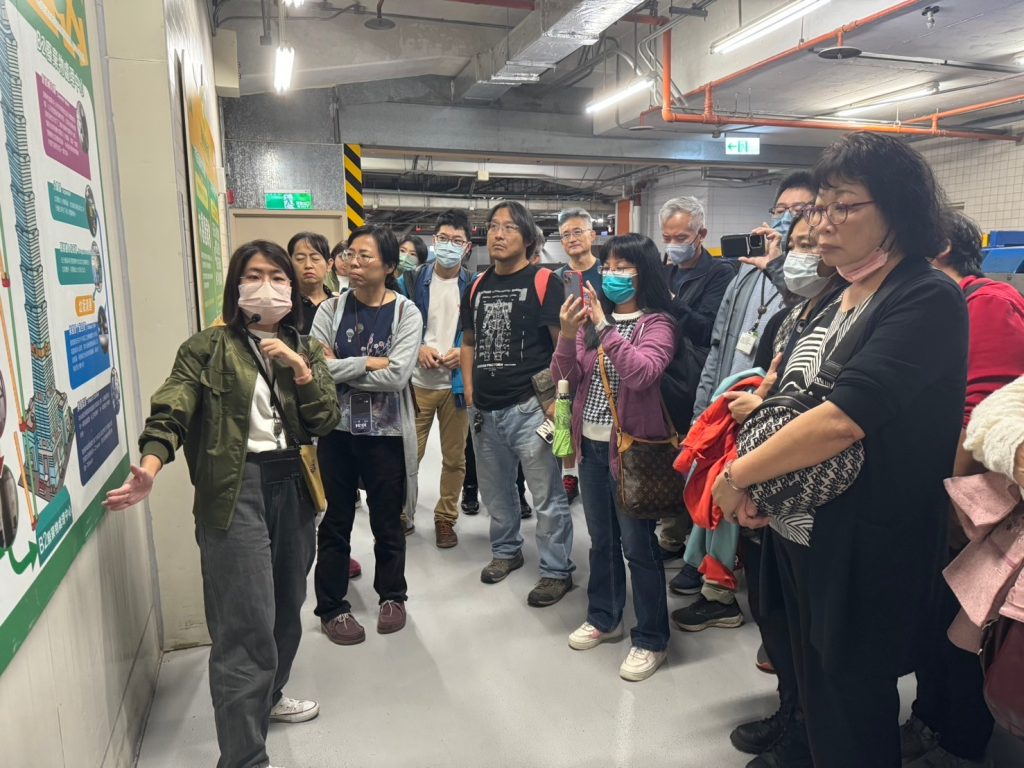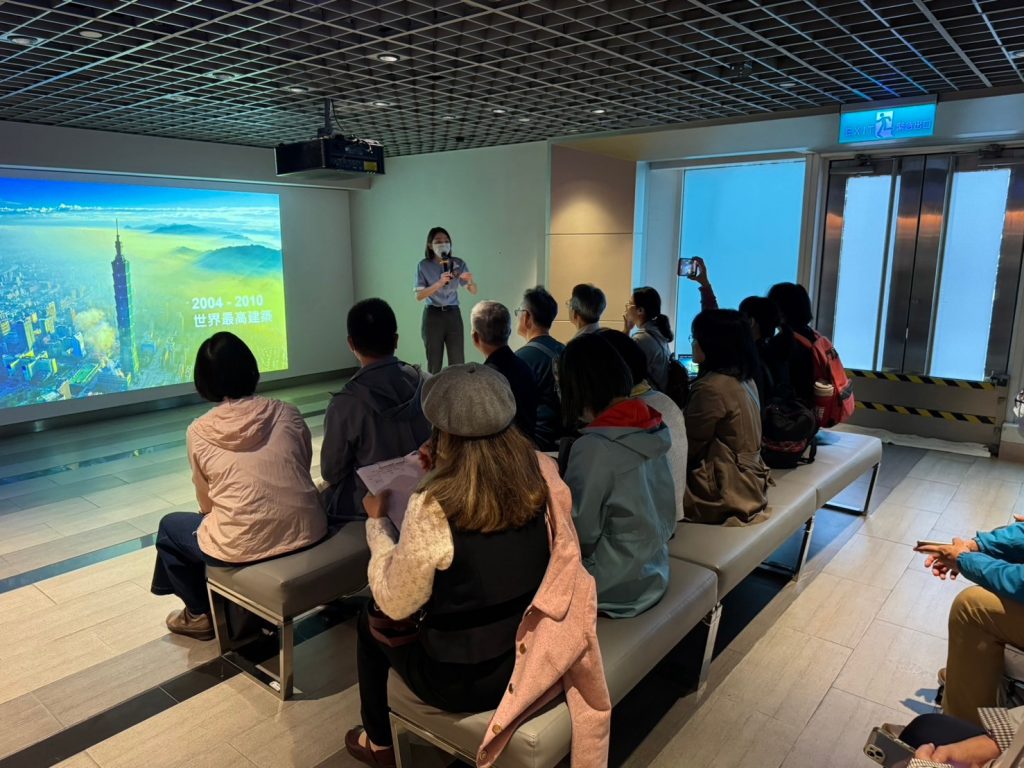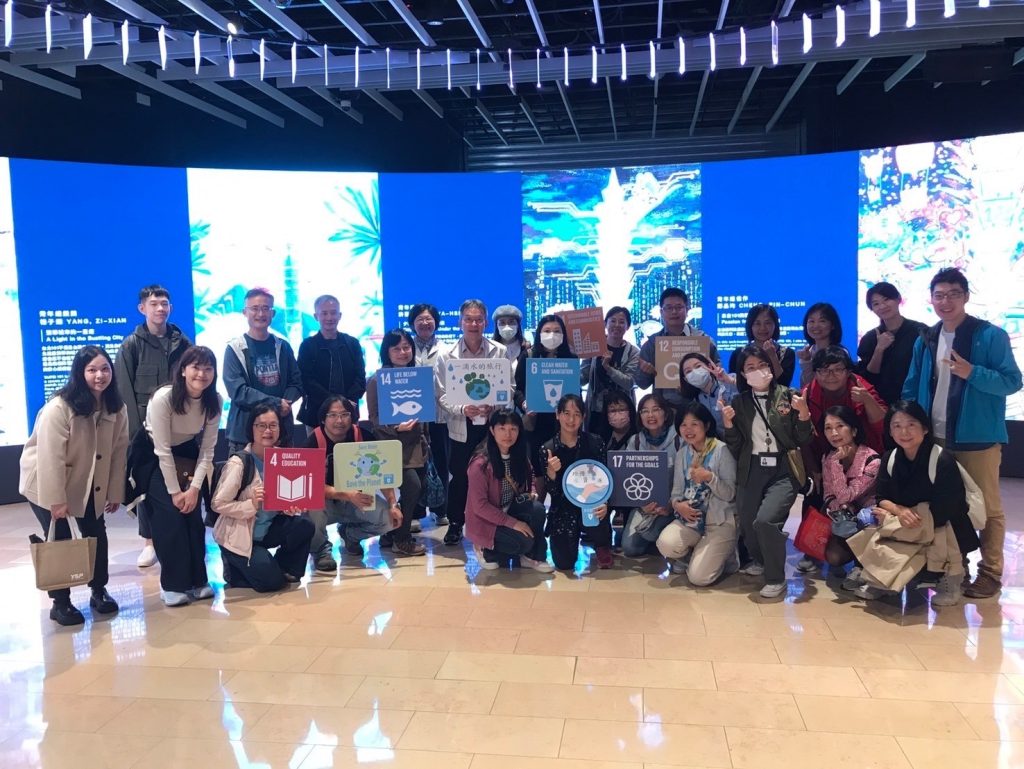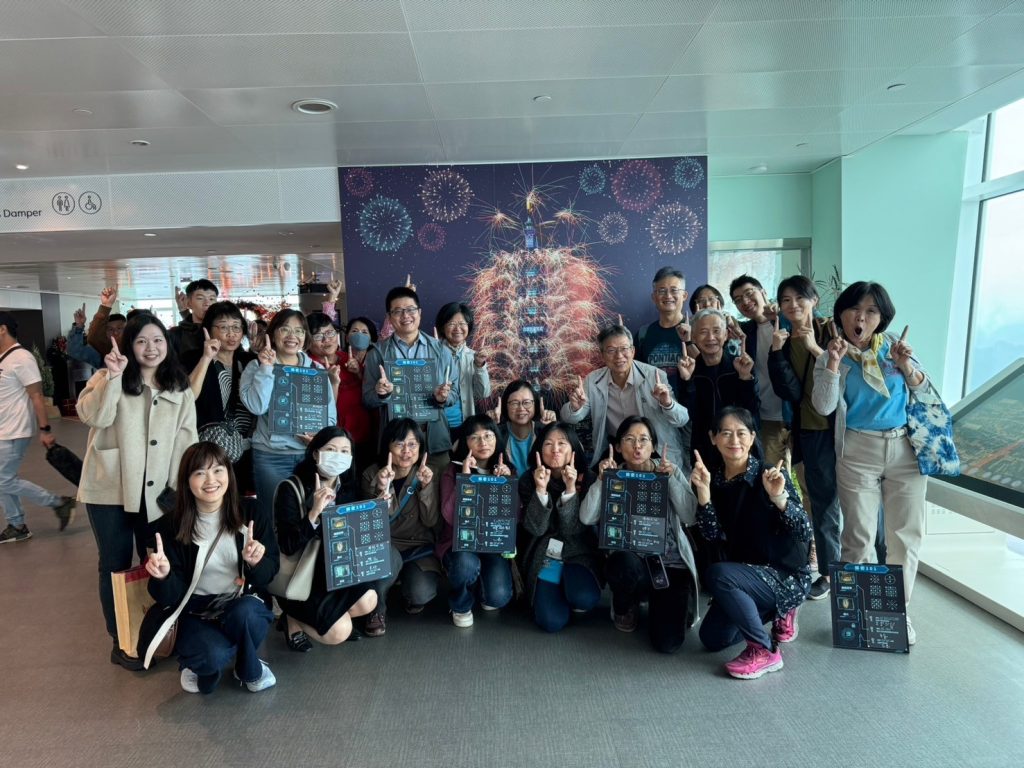To advance the Sustainable Development Goal of Clean Water and Sanitation (SDG 6), the Sustainable Development Office has led a community engagement initiative to enhance environmental awareness and regional development in watershed areas. On November 25, the Office organized the “Taipei 101 Environmental Education” workshop. The event brought together teachers from Taipei City Environmental Education Advisory Groups to participate in water resource experiential learning and fostering water literacy and conservation in daily life.
Since 2022, Taipei 101 has made “environmental education” a core objective and has earned certification as an environmental education site, becoming Taiwan’s tallest environmental education platform. In recent years, Taipei 101 has actively promoted unique environmental education programs, encouraging students and the public to explore the Taipei Basin’s geography, culture, urban development, and the interaction between Taipei 101’s architecture and surrounding environment from a high-altitude perspective. These initiatives aim to deepen understanding and appreciation of the local community and inspire a shift toward coexisting harmoniously with nature.
The visit to Taipei 101 included a tour of the waste management center in the basement and the observation deck on the 89th floor, which explored the building’s sustainability initiatives and related facilities. These include architectural planning, waste management systems, and high-altitude disaster response measures, which aim to foster values that promote environmental sustainability for all.
The first stop was the waste management center. According to the guide, Taipei 101 accommodates an average of 10,000 to 20,000 visitors daily, generating approximately 1.8 to 2 tons of food waste—a significant volume. Despite handling such much waste, the center remains impressively clean. Taipei 101 has developed four core strategies to minimize waste generation and enhance resource reuse: reduction, food conservation, plastic use limitation, and donation. These strategies are implemented through several vital practices:
- Comprehensive Waste Sorting: Waste is sorted into 35 categories, including 32 types of recyclable materials, significantly boosting the rates of resource and food waste recycling to ensure optimal reuse.
- Vertical Waste Disposal System: Non-recyclable waste undergoes processes such as shredding, dewatering, and compression, reducing its volume by two-thirds and decreasing the frequency of waste transport.
- Circular Reuse Initiatives: Usable clothing hangers discarded by retail stores are given to dry cleaners. At the same time, items still in good condition are redistributed through an online donation platform to those in need, promoting resource circulation.
- Food Conservation Efforts: Near-expiry products are sold at discounted prices, and customers are encouraged to order mindfully and pack leftovers. Additionally, partnerships with supermarkets facilitate the redistribution of near-expiry dry goods, fresh produce, and other food items to food banks and underprivileged groups, supporting food conservation and reducing food waste.


The second stop of the visit was to take the Taipei 101 ultra-fast elevator to the 89th observation deck. The guide introduced Taipei 101’s sustainable design and innovative practices. Regarding sustainable architecture, Taipei 101 actively manages energy and resource use by installing rainwater harvesting platforms and upgrading all office lighting to energy-efficient LED fixtures. These efforts have earned the building LEED Platinum certification three times since 2011.
Taipei 101 also emphasizes the well-being of its tenants, focusing on creating a healthy environment that nurtures physical, mental, and social wellness. In 2023, it achieved the world’s highest score for WELL v2 Core certification, earning Platinum status and receiving perfect scores in the “Air,” “Water,” and “Innovation” categories. This accomplishment makes Taipei 101 the only supertall building among the global top 10 to hold LEED and WELL Platinum certifications, underscoring its commitment to sustainability and occupant health.
Regarding innovation, Taipei 101 has collaborated with IKEA to implement Taiwan’s first furniture leasing service in the Sky Park public space on the 35th floor, promoting the concept of a circular economy. Unlike traditional ownership models, the leasing service allows suppliers to provide and maintain all furniture, with seasonal updates and repairs handled by the supplier. This ensures that furniture can be refurbished and reused, extending the lifespan of raw materials, maximizing resource efficiency, and fostering long-term partnerships with suppliers.
The visit concluded with an interactive game, where participants first solved puzzles on a game board, followed by explanations from the guide. After about two hours, the event came to an end. This visit offered a unique perspective on Taipei 101, a globally renowned landmark. While most people come to Taipei 101 for sightseeing or shopping, only some have the opportunity to learn about its efforts in waste management, resource conservation, and sustainable development. From its comprehensive waste processing system to its various sustainability initiatives, Taipei 101 demonstrates a solid commitment to resource recycling, energy efficiency, and carbon reduction, positioning itself well for a net-zero future.



